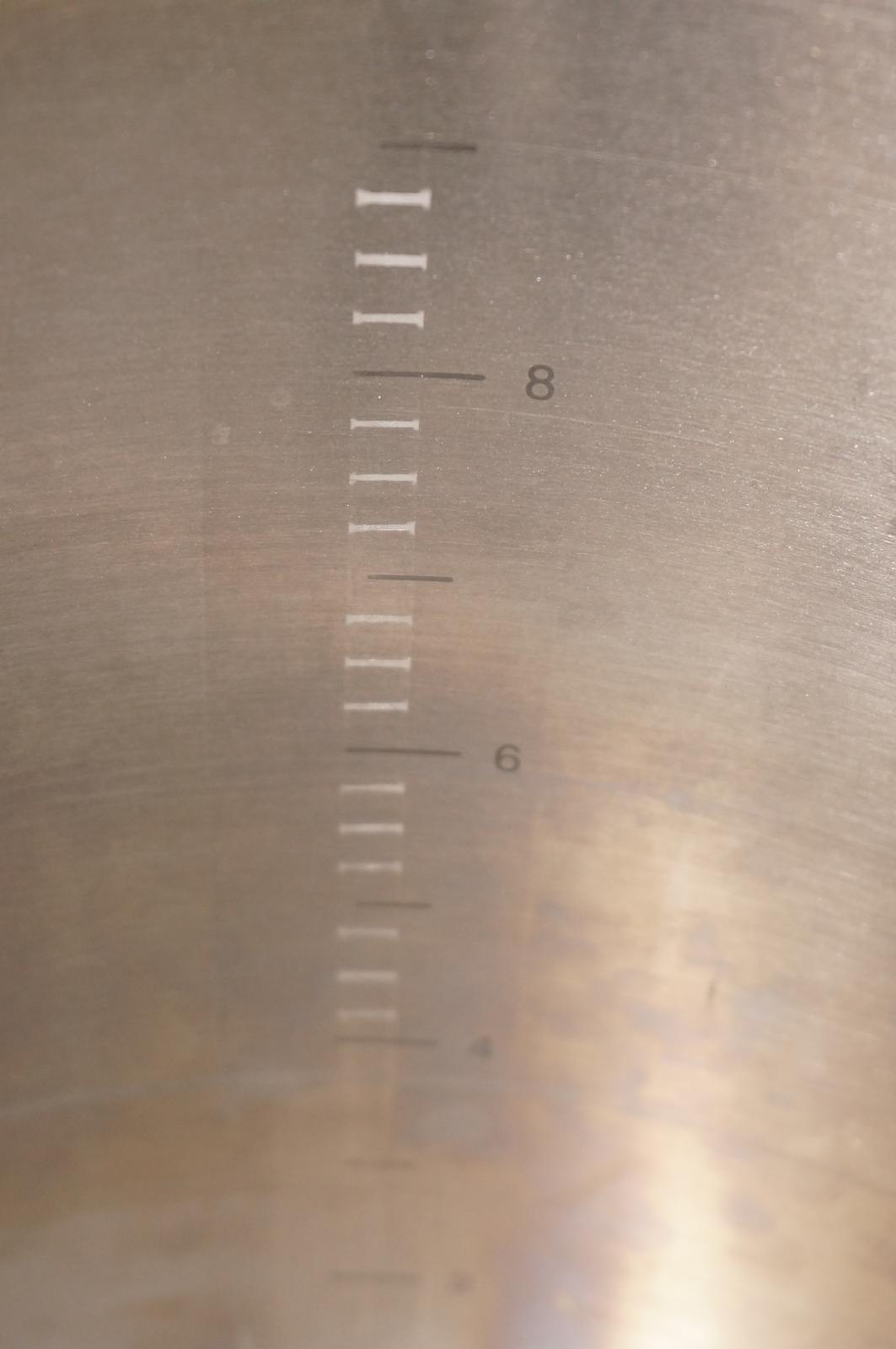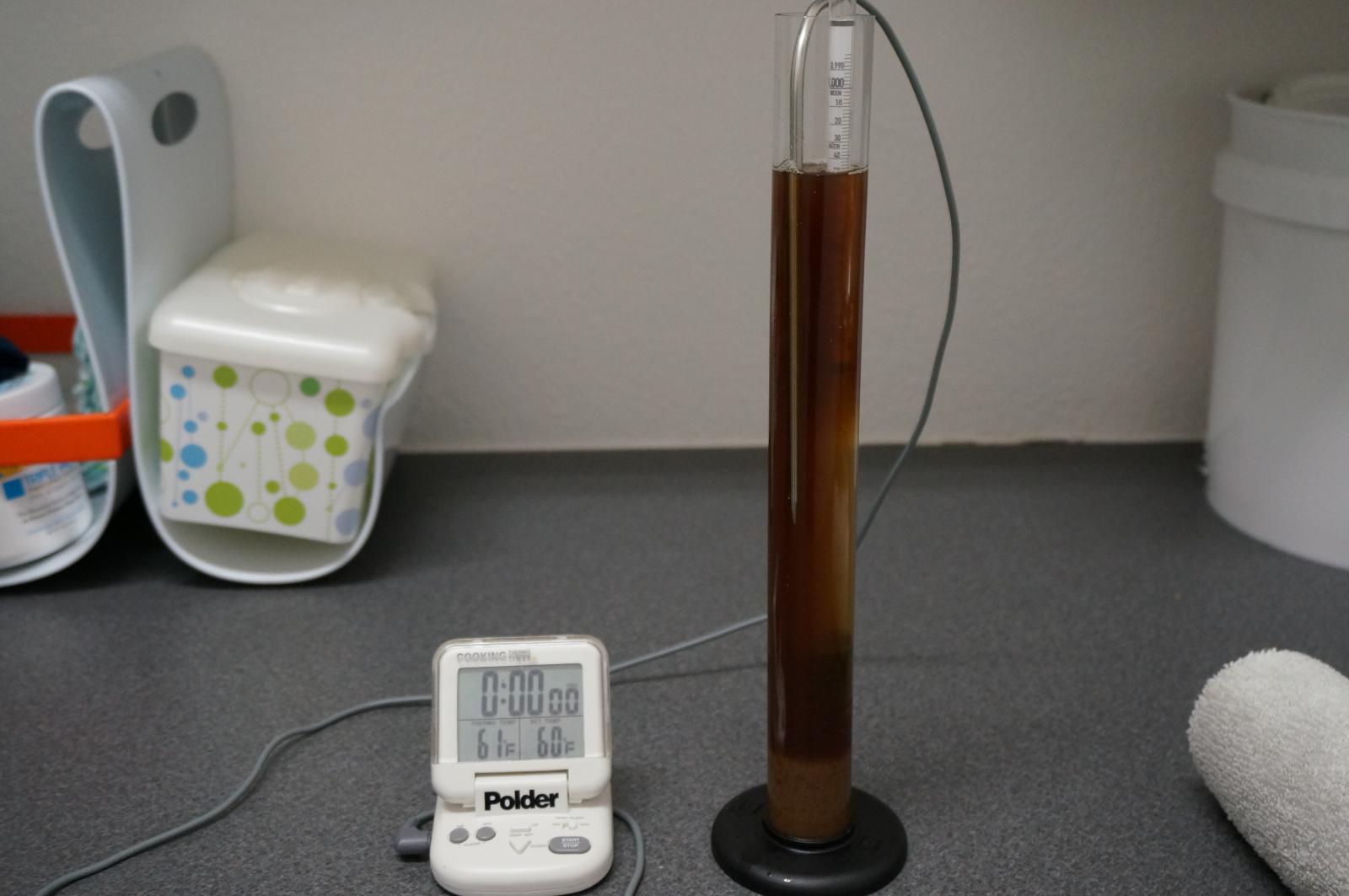Hello,
I am having a hard time finding where I am losing efficiency between my pre-boil gravity and original gravity.
In Short
Yesterday I brewed an IIPA with a pre-boil gravity of 1.054 at 8.1 gallons. After a 90 minute boil I had 6 gallons at 1.064. Beersmith says I should have 1.072 after boil with 6 gallons and this is what I was shooting for. I also used the formula of pre-boil Gravity = OG*(post-boil Volumn)/(Pre-boil Volumn). This gave me 72*6/8= 54. Which is what my pre-boil was.
Why was my OG not 1.072?
Longer Story
I planned an all grain IIPA with 15 pounds of grain and 12oz corn sugar. I was aiming for 1.072 OG and 6 gallon. On brew day I realized I was short a couple pounds of two row, so I supplemented some DME that I had laying around for starters. I compleated the mash and sparge and arrived at my pre-boil vomumn. I added the DME and corn suger according to the recipe and arrived at 1.054, which was spot on to where beersmith said I should be.
Into the carboy I only had 5 gallons because of loss to the 9 oz of hops in the boil and in the lines and heat exchanger. I had 8.1 gallons in the kettle preboil at around 150° and 6 gallons after boil at 65°. I used my calibrated refractometer to measure gravity multiple times. On pre-boil measurements I stirred the wort around and then checked to arrive at 1,054. On post boil, I checked while transferring to to the carboy, as I would turn off the pump and let a couple drops hit the refractometer. I checked with this method three times at about the middle of the transfer.
Am I missing something? Why wasn't my O.G. 1.072?
I am having a hard time finding where I am losing efficiency between my pre-boil gravity and original gravity.
In Short
Yesterday I brewed an IIPA with a pre-boil gravity of 1.054 at 8.1 gallons. After a 90 minute boil I had 6 gallons at 1.064. Beersmith says I should have 1.072 after boil with 6 gallons and this is what I was shooting for. I also used the formula of pre-boil Gravity = OG*(post-boil Volumn)/(Pre-boil Volumn). This gave me 72*6/8= 54. Which is what my pre-boil was.
Why was my OG not 1.072?
Longer Story
I planned an all grain IIPA with 15 pounds of grain and 12oz corn sugar. I was aiming for 1.072 OG and 6 gallon. On brew day I realized I was short a couple pounds of two row, so I supplemented some DME that I had laying around for starters. I compleated the mash and sparge and arrived at my pre-boil vomumn. I added the DME and corn suger according to the recipe and arrived at 1.054, which was spot on to where beersmith said I should be.
Into the carboy I only had 5 gallons because of loss to the 9 oz of hops in the boil and in the lines and heat exchanger. I had 8.1 gallons in the kettle preboil at around 150° and 6 gallons after boil at 65°. I used my calibrated refractometer to measure gravity multiple times. On pre-boil measurements I stirred the wort around and then checked to arrive at 1,054. On post boil, I checked while transferring to to the carboy, as I would turn off the pump and let a couple drops hit the refractometer. I checked with this method three times at about the middle of the transfer.
Am I missing something? Why wasn't my O.G. 1.072?






![Craft A Brew - Safale BE-256 Yeast - Fermentis - Belgian Ale Dry Yeast - For Belgian & Strong Ales - Ingredients for Home Brewing - Beer Making Supplies - [3 Pack]](https://m.media-amazon.com/images/I/51bcKEwQmWL._SL500_.jpg)





















































